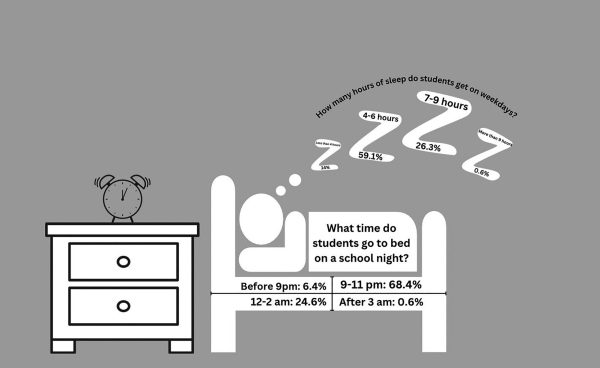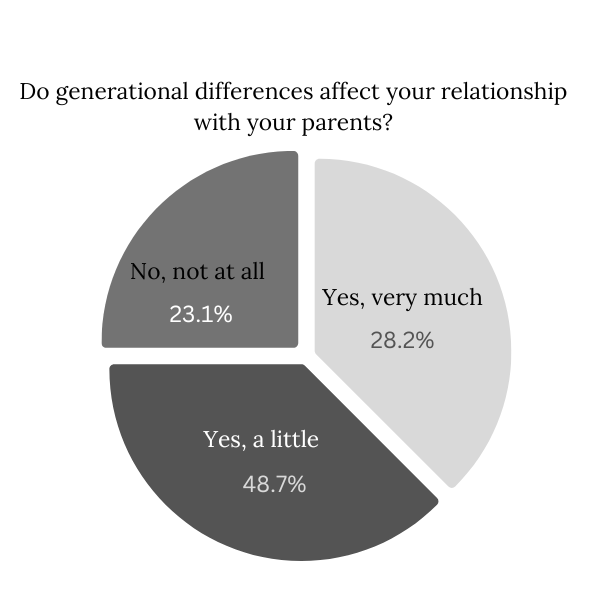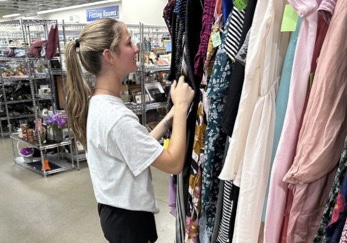Sensory Processing Issue: how to spot, help
For some students, the combination of condensed spacing and loud noises make hallways a daily stressor.
January 31, 2020
Sensory regulation is defined as maintaining an appropriate level of alertness to respond appropriately to sensory stimuli. However, some people can be overwhelmed by their senses, which can affect their daily life mildly or severely.
Sensory regulation is under the umbrella of sensory processing disorders. Sensory processing issues can make processing the five senses either heightened or desensitized, which can lead to being overwhelmed by sensory input and cause distress physically and emotionally.
As an example, some students who have sensory processing disorder may experience headaches or anxiety to flashing lights.
“Sensory issues can affect someone’s daily life at varying levels of severity,” Jaclyn Kwiatt, social worker, said. “Some people are able to manage their reaction to the sensory trigger, others (typically those with autism) can have a more difficult time and might need greater support at school, home, and in a job to help them navigate their response to these issues.”
Patricia Griegel, school psychologist, said there are different types of inputs, like visual, auditory, and vestibular input, which deals with movement. Those ones are typically the primary inputs that are affected by sensory overload.
“Some examples of sensory processing issues are being sensitive to louder environments such as the cafeteria, loud talking. Some people experience sensory overload in things they can touch, so they are sensitive to certain types of clothing fabric,” Kwiatt said. “Others may be sensitive to things they can taste and only eat specific types of food due to the texture. An example of sight might be people who are sensitive to certain lighting.” One junior girl said that she experiences sensory processing issues in the hallways of school when people are all crowded together. It overall heightens all her senses and anxiety.
“Sounds get louder, and everything either feels like it’s going really fast or really slow. So if I’m going through the halls it can feel like everything is going really slow and everything is louder, and your thoughts also get louder at the same time, so it’s like everything’s just screaming,” she said.
Grace Ketchmark, freshman, said when she experiences sensory processing issues at school she would get really nauseous and make herself sick because she would breathe really heavy. When she was younger, these reactions would make coming to school very difficult for her.
“Getting help from a mental health counselor
can be beneficial for those who are experiencing severe enough reactions to where it is impacting their daily functioning,” Kwiatt said.
Students who believe they may experience sensory processing issues can go to counselors or social workers for help relieve or maintain symptoms.
“Mental health counselors can help people develop coping skills to manage their reactions or also expose them to certain stimuli that might help someone get used to the trigger so that their reaction is less severe.”
Others are not as greatly impacted emotionally with sensory processing issues. Malaika Mburu, senior, says that she is mainly affected by sound at school, such as the projector ringing, someone playing with their pen or feet tapping.
“I’ll hear a sound in the background and I’ll keep going back to it, but it’s really annoying because you can’t block out that sound once you realize it. You keep hearing it and feeling that discomfort, so sometimes I will get angry or uncomfortable when it gets too much,” Mburu said.
Ketchmark says when she experiences sensory overload, she tries to distract herself and use other anxiety coping methods.
“When I was little it was more of like cut your finger and more of just being distracted, whereas now it’s more just breathing and trying to ground myself,” Ketchmark said. “Like 5 things I can see, 4 things I can hear, 3 things I can touch, etc.”
Griegel said that the real issue is everyone experiences anxiety on some level, it’s just how powerful does that become and how much does it impact a student’s life.













